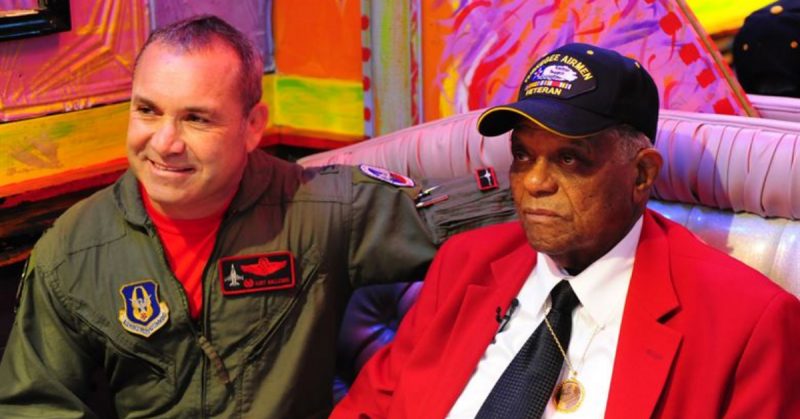Despite having to fly secondhand P-40 fighter planes, which were slower than their German counterparts, the Tuskegee Airmen gained an impressive reputation.
One of the last dozen or so surviving Tuskegee Airmen has died at age ninety-six. Robert T. McDaniel was drafted in 1943, trained at Tuskegee, Alabama, and became one of the elite combat pilots that were known as the Red Tails. At the time the services were segregated with separate infantry, tank commands, and air crew.
In 2012 McDaniel spoke at a reception at the first screening of George Lucas’ film Red Tails. He said, “There were no blacks in the Air Corps…they said, ‘They don’t have the dexterity to work these planes.’’’ But with more than 900 pilots trained between 1941 and 1946 these racially motivated assumptions were destroyed, and after the war the barriers began to fall.
In 2007, when Barack Obama was a US Senator from Illinois, he paid tribute to the Airmen when the group received the Congressional Gold Medal, recognizing their special status as trailblazers and claiming it made his own career in public service possible.
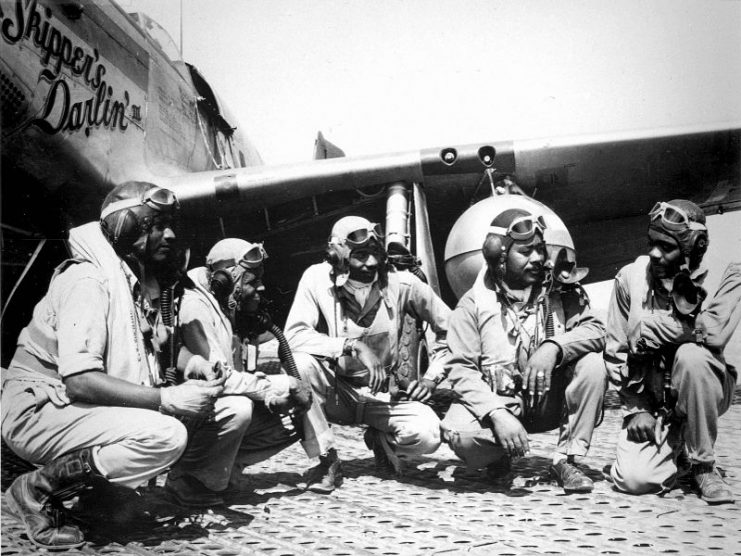
Like many veterans however, McDaniel was modest about the role he played in the Mediterranean theater of operations in World War II. It’s said that few people in Fort Worth, where the former airman lived, were aware of his service until the Tuskegee Airmen’s story was shared in an exhibition at the Leonora Rolla Heritage Center Museum in 2013.
The Tuskegee Airmen were the first black military flyers in the US Army Air Corps and flew more than 15,000 sorties in Europe and across North Africa where they received more than 150 Distinguished Flying Crosses.
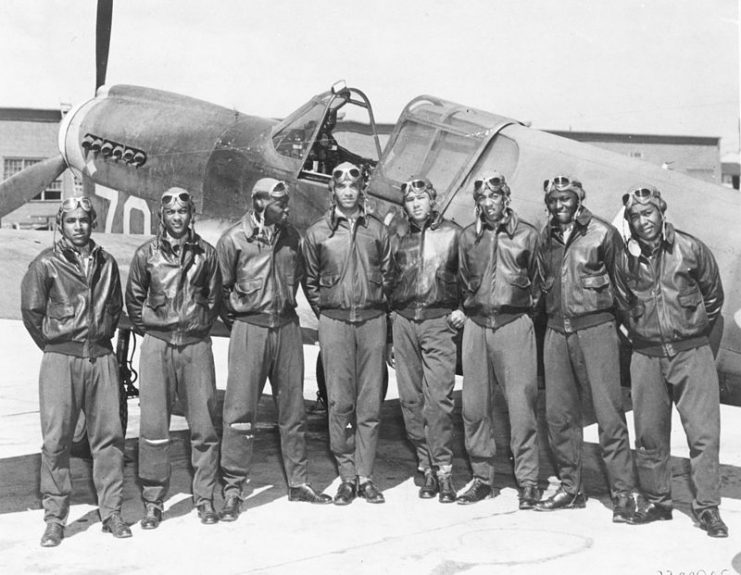
The Tuskegee training program also produced 14,000 navigators, bombardiers, aircraft and engine mechanics, and control tower and support personnel. In short, everyone required to run and maintain a flight squadron.
https://youtu.be/wdf9YwOHqf0
In 1941 the airbase was visited by First Lady Eleanor Roosevelt, who helped boost the public profile of the airmen and encouraged new recruits to apply. Many of the recruits to the program were high achievers like McDaniel, who had been both class president and valedictorian in 1940 at his high school.
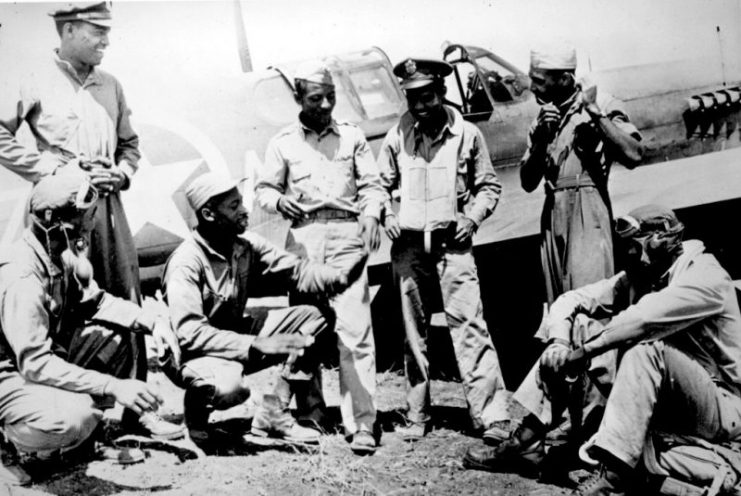
Despite having to fly secondhand P-40 fighter planes, which were slower and less maneuverable than their German counterparts, the Tuskegee Airmen gained an impressive reputation for flying ability. Pilots from the 99th Fighter Group shot down twelve German fighter planes in just two days in early 1944 and a rumor persisted that they had never lost a bomber in all of their escort duties.
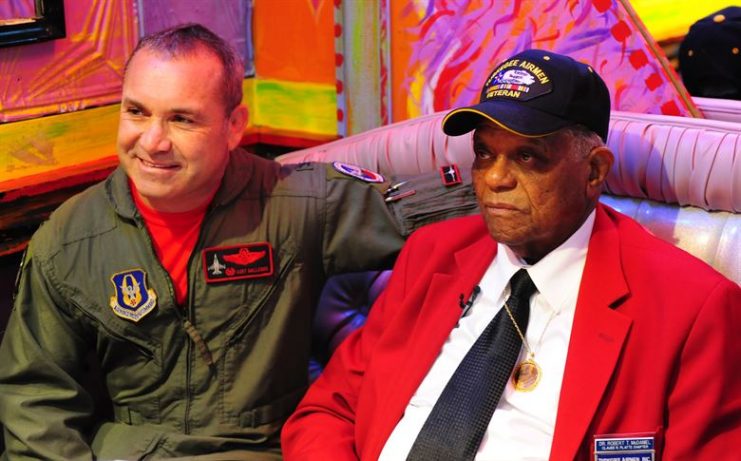
Later historical analysis of the records disproved this, but in 200 missions they only lost 25 bombers compared to an average loss rate of 49 across the Air Corps. They destroyed 36 German planes in the air and hundreds more on the ground, and disrupted thousands of ground transports and even a German destroyer.
The name “Red Tails” came from the red paint used to identify the flyers. They were also called the Red-Tailed Angels in reference to their excellent wartime reputation.

Tuskegee Airman Dr. Robert T. McDaniel, 88, poses with a group of local youths during a celebration of the opening of “Red Tails.” The movie is based on the first all-black squadron of bombers, pilots and maintainers in the Armed Forces during World War II. (U.S. Air Force photo/Senior Airman Martha Whipple)
Sixty-six aviators were killed during the war, including Captain Lawrence Dickson who was reported as Missing in Action when he was shot down over the Italian Alps in December 1944. His remains were discovered recently and repatriated to the USA.
Read another story from us: Tuskegee Airman to be Returned to Arlington National Cemetery USA
Robert McDaniel was lucky enough to make it home and returned to his I. M. Terrell Elementary School as a teacher. Former student Sarah Walker, president of Tarrant County Black Historical and Genealogical Society, said, “They weren’t seeking pride. It was just a thing they knew they had to do.”
A wake is due to be held on March 27th at St Peter Presbyterian Church in Fort Worth at 6 PM. The funeral is booked for the following day at 11 AM at the Shiloh Missionary Baptist Church in Fort Worth.
